- Over 1 million successful rentals
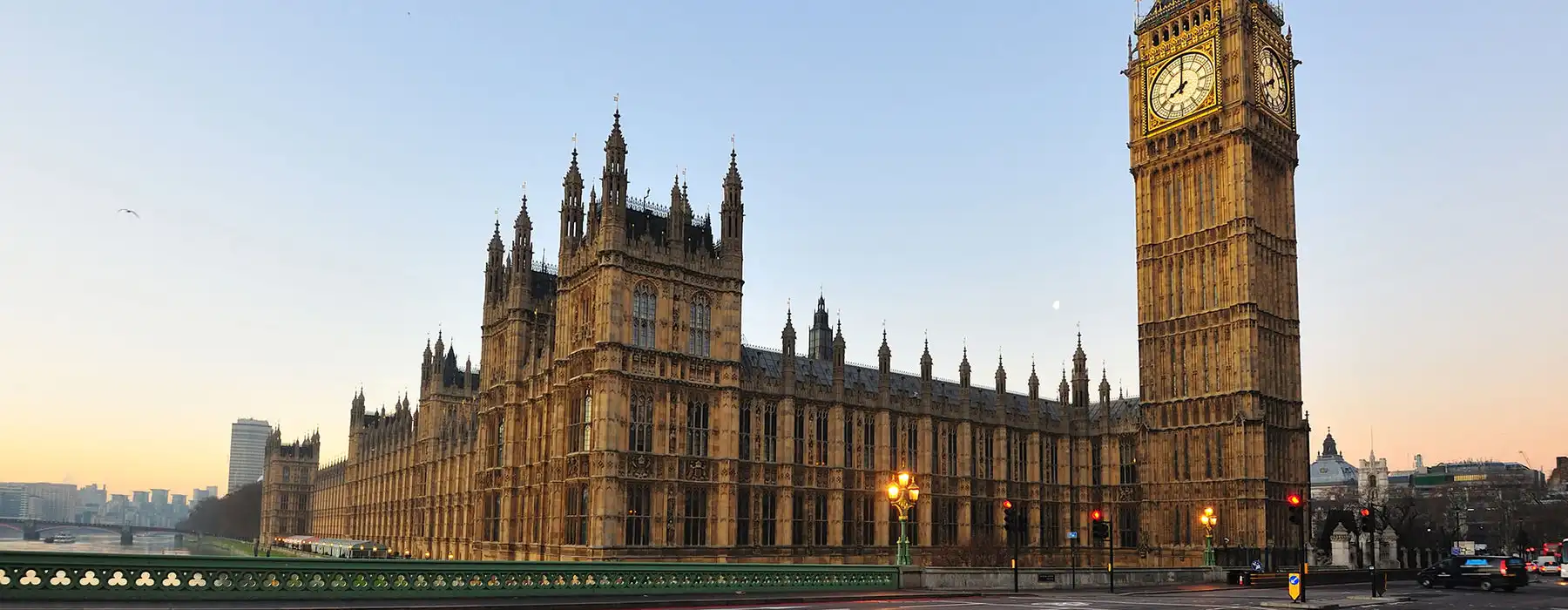
Car Hire United Kingdom
Save time and money. We compare the offers of car rental companies in United Kingdom on your behalf.
- Free cancellation Up to 48 hours prior to the scheduled pick up time
- Best price guarantee Have you found a better price? Let us know and we will make you a better offer.
- 24000+ pick-up locations Locations around the world

Compare Car Hire
Carrentals.co.uk offers simple and straightforward car hire comparison services. We don't add a penny to your quotes!
Car rental offers in United Kingdom
Whether you're looking for a small rental car or a station wagon for the entire family, we will always have a suitable vehicle for the lowest price. Below are some examples from our selection in United Kingdom.

-
Europcar From£ 7 /day -
U-Save Auto Rental From£ 9 /day -
Green Motion From£ 11 /day

-
Green Motion From£ 8 /day -
SurPrice car rentals From£ 11 /day -
Enterprise From£ 16 /day

-
Europcar From£ 15 /day -
Dollar Rent a Car From£ 19 /day -
Hertz From£ 19 /day

-
Drivalia From£ 9 /day -
Green Motion From£ 9 /day -
SurPrice car rentals From£ 11 /day

-
Drivalia From£ 9 /day -
Green Motion From£ 11 /day

-
Budget From£ 16 /day -
Avis From£ 17 /day -
Europcar From£ 23 /day

-
Green Motion From£ 9 /day

-
Green Motion From£ 10 /day -
SurPrice car rentals From£ 11 /day -
Athol Car Hire From£ 52 /day

-
Budget From£ 21 /day

-
Green Motion From£ 9 /day -
Budget From£ 14 /day

-
Drivalia From£ 9 /day -
SurPrice car rentals From£ 12 /day -
Sixt From£ 18 /day

-
Europcar From£ 15 /day -
Avis From£ 17 /day -
Dollar Rent a Car From£ 20 /day

-
U-Save Auto Rental From£ 9 /day -
Budget From£ 14 /day -
Green Motion From£ 17 /day

-
Green Motion From£ 10 /day

-
Budget From£ 16 /day -
U-Save Auto Rental From£ 73 /day

-
Green Motion From£ 10 /day

-
Green Motion From£ 11 /day

-
Budget From£ 19 /day -
Avis From£ 20 /day

-
Drivalia From£ 9 /day -
Europcar From£ 46 /day -
Keddy By Europcar From£ 70 /day

-
Green Motion From£ 10 /day

-
Europcar From£ 16 /day

-
Drivalia From£ 10 /day -
Sixt From£ 18 /day

-
Green Motion From£ 10 /day -
Drivalia From£ 10 /day -
SurPrice car rentals From£ 14 /day

-
Europcar From£ 16 /day -
Avis From£ 19 /day

-
U-Save Auto Rental From£ 10 /day -
Green Motion From£ 11 /day -
SurPrice car rentals From£ 13 /day

-
U-Save Auto Rental From£ 10 /day

-
Budget From£ 18 /day -
Avis From£ 18 /day -
Europcar From£ 20 /day

-
U-Save Auto Rental From£ 10 /day -
Green Motion From£ 13 /day -
SurPrice car rentals From£ 17 /day

-
U-Save Auto Rental From£ 10 /day -
Drivalia From£ 12 /day -
SurPrice car rentals From£ 19 /day

-
Europcar From£ 18 /day -
Keddy By Europcar From£ 74 /day

-
Green Motion From£ 12 /day

-
Drivalia From£ 12 /day -
SurPrice car rentals From£ 16 /day

-
Budget From£ 22 /day -
U-Save Auto Rental From£ 100 /day

-
Green Motion From£ 12 /day

-
Drivalia From£ 12 /day -
SurPrice car rentals From£ 80 /day

-
Budget From£ 22 /day -
Hertz From£ 25 /day

-
Green Motion From£ 13 /day -
Avis From£ 67 /day -
SurPrice car rentals From£ 80 /day

-
Green Motion From£ 13 /day -
Avis From£ 24 /day

-
Europcar From£ 19 /day -
Budget From£ 29 /day -
Avis From£ 30 /day

-
SurPrice car rentals From£ 16 /day -
Green Motion From£ 21 /day

-
Green Motion From£ 17 /day -
Sixt From£ 31 /day -
Hertz From£ 33 /day

-
Budget From£ 21 /day

-
Green Motion From£ 18 /day -
Avis From£ 24 /day -
Sixt From£ 28 /day

-
Hertz From£ 23 /day

-
Europcar From£ 20 /day -
Budget From£ 22 /day -
Keddy By Europcar From£ 23 /day

-
Dollar Rent a Car From£ 21 /day -
Hertz From£ 22 /day

-
Europcar From£ 22 /day -
Keddy By Europcar From£ 35 /day

-
Dollar Rent a Car From£ 23 /day -
Hertz From£ 23 /day

-
U-Save Auto Rental From£ 24 /day -
Green Motion From£ 25 /day -
Europcar From£ 47 /day

-
Budget From£ 30 /day -
Hertz From£ 51 /day

-
Green Motion From£ 25 /day -
Drivalia From£ 28 /day -
SurPrice car rentals From£ 33 /day

-
Green Motion From£ 26 /day -
Enterprise From£ 36 /day -
Sixt From£ 40 /day

-
Avis From£ 30 /day -
Sixt From£ 31 /day

-
Drivalia From£ 26 /day

-
Drivalia From£ 15 /day -
Alamo From£ 32 /day -
Enterprise From£ 33 /day

-
Drivalia From£ 16 /day

-
Europcar From£ 32 /day

-
Drivalia From£ 16 /day -
Avis From£ 30 /day

-
Drivalia From£ 28 /day

-
Europcar From£ 33 /day -
Hertz From£ 42 /day

-
Alamo From£ 31 /day -
Enterprise From£ 39 /day -
National Car Rental From£ 46 /day

-
Europcar From£ 32 /day

-
Avis From£ 33 /day

-
Green Motion From£ 13 /day -
Sixt From£ 23 /day

-
Green Motion From£ 13 /day -
U-Save Auto Rental From£ 15 /day -
Hertz From£ 23 /day

-
Hertz From£ 26 /day -
Green Motion From£ 57 /day -
U-Save Auto Rental From£ 96 /day

-
SurPrice car rentals From£ 17 /day -
Hertz From£ 25 /day -
Sixt From£ 26 /day

-
Green Motion From£ 17 /day -
Sixt From£ 31 /day -
Hertz From£ 33 /day

-
Sixt From£ 27 /day

-
U-Save Auto Rental From£ 18 /day -
Green Motion From£ 21 /day

-
Drivalia From£ 22 /day

-
Sixt From£ 27 /day -
Green Motion From£ 47 /day

-
Drivalia From£ 23 /day -
Sixt From£ 52 /day -
Hertz From£ 56 /day

-
Green Motion From£ 31 /day -
Sixt From£ 58 /day

-
Sixt From£ 59 /day -
Hertz From£ 96 /day

-
Drivalia From£ 35 /day

-
Green Motion From£ 39 /day

-
Sixt From£ 73 /day

-
Alamo From£ 43 /day -
Enterprise From£ 45 /day -
National Car Rental From£ 47 /day

-
Hertz From£ 47 /day -
Sixt From£ 55 /day -
Drivalia From£ 70 /day

-
Hertz From£ 77 /day -
Sixt From£ 101 /day

-
Drivalia From£ 10 /day -
Green Motion From£ 11 /day -
SurPrice car rentals From£ 14 /day

-
U-Save Auto Rental From£ 10 /day -
Drivalia From£ 12 /day -
Sixt From£ 29 /day

-
Europcar From£ 16 /day

-
Green Motion From£ 12 /day -
Drivalia From£ 22 /day

-
Green Motion From£ 12 /day -
Budget From£ 16 /day -
Enterprise From£ 17 /day

-
Budget From£ 18 /day

-
Green Motion From£ 12 /day -
Sixt From£ 23 /day -
Avis From£ 49 /day

-
Green Motion From£ 13 /day -
Keddy By Europcar From£ 17 /day -
Alamo From£ 19 /day

-
Europcar From£ 18 /day -
Budget From£ 32 /day -
Keddy By Europcar From£ 74 /day

-
Drivalia From£ 9 /day

-
Green Motion From£ 9 /day

-
Budget From£ 18 /day -
Avis From£ 18 /day -
Europcar From£ 20 /day

-
Green Motion From£ 10 /day

-
Drivalia From£ 10 /day -
Europcar From£ 46 /day -
Keddy By Europcar From£ 70 /day

-
Budget From£ 21 /day

-
Green Motion From£ 10 /day

-
Drivalia From£ 11 /day -
Alamo From£ 12 /day -
Enterprise From£ 12 /day

-
Dollar Rent a Car From£ 23 /day -
Hertz From£ 23 /day
Popular cities in United Kingdom
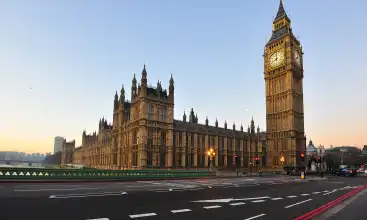


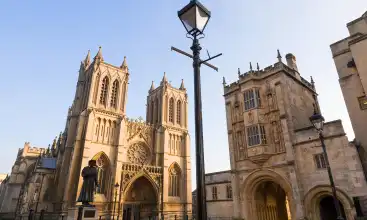

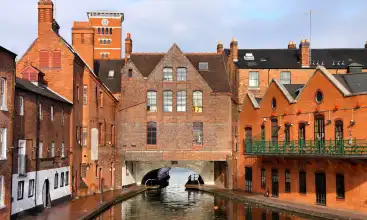
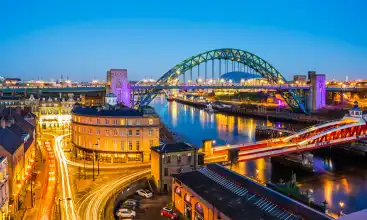
Popular rental locations in United Kingdom
-
Car Hire London Heathrow AirportFrom
£ 8 /day -
Car Hire London Gatwick AirportFrom
£ 10 /day -
Car Hire Manchester AirportFrom
£ 7 /day -
Car Hire Edinburgh AirportFrom
£ 9 /day -
Car Hire London Stansted AirportFrom
£ 9 /day -
Car Hire London Luton AirportFrom
£ 10 /day -
Car Hire Glasgow AirportFrom
£ 10 /day -
Car Hire Bristol AirportFrom
£ 12 /day

When to book a rental car in United Kingdom
United Kingdom - When is the most affordable time to rent a mini class car?
At this destination (United Kingdom), January is the most affordable time to rent a mini class car with an average daily rate of
United Kingdom - When is the most affordable time to rent a economy class car?
At this destination (United Kingdom), January is the most affordable time to rent a economy class car with an average daily rate of
United Kingdom - When is the most affordable time to rent a compact class car?
At this destination (United Kingdom), January is the most affordable time to rent a compact class car with an average daily rate of
United Kingdom - When is the most affordable time to rent an intermediate class car?
At this destination (United Kingdom), January is the most affordable time to rent a intermediate class car with an average daily rate of
United Kingdom - When is the most affordable time to rent a standard class car?
At this destination (United Kingdom), January is the most affordable time to rent a standard class car with an average daily rate of
United Kingdom - When is the most affordable time to rent a full-size car?
At this destination (United Kingdom), January is the most affordable time to rent a full-size class car with an average daily rate of
United Kingdom - When is the most affordable time to rent a luxury car?
At this destination (United Kingdom), January is the most affordable time to rent a luxury class car with an average daily rate of
United Kingdom - When is the most affordable time to rent a station wagon?
At this destination (United Kingdom), January is the most affordable time to rent a station wagon with an average daily rate of
United Kingdom - When is the most affordable time to rent a SUV?
At this destination (United Kingdom), January is the most affordable time to rent an SUV with an average daily rate of
United Kingdom - When is the most affordable time to rent a MPV?
At this destination (United Kingdom), November is the most affordable time to rent an mpv with an average daily rate of
United Kingdom - When is the most affordable time to rent a minivan?
At this destination (United Kingdom), January is the most affordable time to rent a minibus with an average daily rate of
United Kingdom - When is the most affordable time to rent a sports car?
At this destination (United Kingdom), January is the most affordable time to rent a sports car with an average daily rate of
United Kingdom - When is the most affordable time to rent a convertible?
At this destination (United Kingdom), January is the most affordable time to rent a convertible with an average daily rate of
United Kingdom - When is the most affordable time to rent a sedan?
At this destination (United Kingdom), November is the most affordable time to rent a sedan with an average daily rate of
United Kingdom - When is the most affordable time to rent a delivery van?
At this destination (United Kingdom), October is the most affordable time to rent a van with an average daily rate of
Car rental locations in United Kingdom
Carrentals.co.uk compares rental car prices at the following destinations

United Kingdom Guide
United Kingdom is best explored by rental car. Carrentals.co.uk has over 483 pick-up locations in United Kingdom. This means there is always a pick-up location close to your destination.
Most popular car hire locations in United Kingdom
Driving
Due to its excellent motorway network, exploring Britain by road is comfortable, convenient and often less expensive than train travel. There’s so much to see in this historic country, from ancient Roman sites through to great medieval cathedrals set in charming towns and cities, to stunning areas of natural beauty such as the Scottish Highlands and Islands, the moorlands of Yorkshire, Devon and Cornwall, and the Lake District. Historic London is the hub, and the UK’s coastlines hold ancient ports and charming villages.
Driving Tips for the UK
The road network covering most of the UK is kept in excellent condition, although country lanes may be narrow with restricted sightlines. Signage is good and the GPS system is comprehensive across the country. City traffic is invariably crowded at rush hours but, in the countryside, roads are often clear.
Driving licences: drivers from overseas will need an International Driving Permit.
Which side does the UK drive on: the left.
Speed limits:
Dual carriageways and motorways: 70mph (112kmh)
Single carriageways: 60mph (96kph)
All roads in built-up areas: 30mph (48kph)
Alcohol limits: drink-driving is considered a serious offence, with the limit set at 80mg of alcohol in 100ml of blood. If you fail a roadside breath test, a blood test is taken at a police station. Heavy fines and a prison sentence are served dependent on the result of the blood test.
Driving age: 17 years; 21 years for car rental.
Seatbelts: mandatory for driver and passengers, if fitted. Children under 12 must use the correct car seat with restraints.
Mobile phones and GPS: mobile phone use while driving is illegal unless a hands-free kit is used. GPS usage is legal.
Cost of fuel in the UK: expensive, due to the high level of fuel tax.
Car hire and fuel payment: car hire providers and petrol stations accept payment by credit cards. Rental companies will oftern require you to have a credit card when collecting your car.
Insurance: basic insurance is included in the cost of car hire, but full insurance is recommended.
Traffic and parking: traffic in UK cities is heavy at rush hours, with London the worst offender, and the M25, the motorway ring road around the city, is known locally as the world’s largest car park. Avoid it if possible. There is a congestion charge for those entering Central London and parking in the city centre is expensive and often metered. Many regional cities and towns operate a shuttle service from car parks on their edges to historic pedestrianised city centres, and parking in country towns is easier. Parking anywhere on double yellow lines will get you clamped, towed or heavily fined.
Transport
Trains
The UK’s rail system is government-operated, with a number of regional train companies providing service. Intercity travel is seamless and fast, but if you’re heading to remote rural districts, there’s unlikely to be a rail route. Prices are among the highest in Europe. The train fare from London to Edinburgh, a journey of around five hours, costs £110, although discount fares can be had. London and its suburbs are well-served by commuter rail services and the London Underground although fares aren’t exactly inexpensive.
Taxis
Taxi services are offered all over the UK at metered or fixed charges, and London’s black cabs are famous the world over for their knowledgeable, friendly drivers. Black cabs can be hired on the streets or booked by phone, and the minimum fare is around £2.40, with an average four-mile journey charged at around £27 depending on time of day and traffic conditions. London’s minicabs (saloon cars) can only be booked in advance and, for long or late-night journeys, are the best choice as regards to cost and availability. In the rest of the UK, minicabs are the usual form of taxi travel, with most hotels having several firms on their books. Charges are slightly less than in London.
Buses
For travel around the UK, long-distance buses are an inexpensive, comfortable and regularly-running alternative to trains, leaving from London’s Victoria Coach Station and offering routes to a huge variety of destinations. London’s bus network is operated by Transport for London and is comprehensive and mid-priced. Its downside in the central district, including the West End shopping hubs, is London’s notorious traffic, making journeys slow throughout the day. In the major cities and towns, buses run regularly but, due to privatisation, many remote villages have only two or three services a week.
Ferries
A good way to get an historical overview of London is by the network of Thames river buses running from Hampton Court Pier, close to Hampton Court Palace, past the Tower of London, Tower Bridge and the city’s ancient port area, all the way to Woolwich Arsenal Pier. Used by Londoners as a commuter service, the river buses run regularly and are an enjoyable way to see the city. Fares average at around £6.
Airports
London has five international airports, with Heathrow and Gatwick the largest, Stansted and Luton mostly serving low-cost and charter airlines, and tiny London City Airport offering routes from major European air hubs. Heathrow and Gatwick are the ports of arrival from hundreds of worldwide destinations, while Gatwick together with Stansted and Luton host flights to the Scottish cities of Edinburgh and Glasgow via EasyJet. Flybe flies to Newcastle from Gatwick, together with British Airways to Manchester. Average costs from London to the tourist hub of Edinburgh are around £70, although CityJet offers an Edinburgh flight from London City Airport at a lower price. Most of the UK’s domestic airports aren’t linked to London’s air hubs due to the short travel distances involved and the fast rail links.
Explore
Exploring the UK
Beginning in London, the UK’s historic sites are the biggest draws for most tourists and include the Tower of London, Tower Bridge, St Paul’s Cathedral, the ancient Square Mile of the City, Buckingham Palace, the Houses of Parliament, Big Ben, Westminster Cathedral and much more. The West End and Mayfair shopping hubs, historic Covent Garden and London’s world-class museums and art galleries are other must-see destinations in the city.
The UK has no fewer than 25 UNESCO World Heritage sites, comprising places of natural beauty along with cultural cities and individual highlights of the country’ rich heritage. The great cathedrals of Canterbury and Durham, mysterious Stonehenge and the standing stone circle at Avebury, the Georgian cities of Bath and Bristol, Blenheim Palace, one of England’s stateliest Stately Homes and many medieval fortifications including the Queen’s weekend residence, Windsor Castle, are all reminders of the country’s impressive heritage.
Natural beauty comes as standard here, but in many different forms. Dorset’s magnificent, fossil-strewn Jurassic Coast, the tiny bays and quaint villages of Cornwall and Devon, and the vast swathes of northern moorlands give way via the Lake District to rugged Scotland with its highlands and remote, traditional offshore islands. Wherever you roam in this magical isle, there’s something to amaze and delight you.
Our Travel Editor’s Recommended Drives
North Yorkshire to Manchester – via the M62 cross-Pennine motorway after winding through the spectacular North Yorkshire moors and past quaint stone-built villages, this scenic drive takes in one of the UK’s most charismatic counties before arriving in ultra-modern Manchester, once home to Lancashire’s dark, satanic cotton mills.
The Peak District – one of the most popular of the UK’s moorland areas, the Derbyshire Peak District is home to wild beauty, historic market towns, bleak escarpments and several of the great ‘Stately Homes’ of England in which the landed gentry lived a ‘Downton Abbey’ lifestyle for centuries.
London to Cornwall – a great escape from the clamour of the capital, a drive to England’s most southerly county takes you through the heart of this ancient land, past Stonehenge, the West Country’s great medieval cathedral cities and wild Exmoor and Dartmoor, home of legends, highwaymen and smugglers. Visit England’s southern tip at Land’s End and detour to the North Cornish coast for ruined Tintagel Castle and its Arthurian links.
Holidays and Festivals
New Year’s Day (1 January)
Good Friday (March/April)
Easter Monday (March/April)
May Bank Holiday (7 May)
Spring Bank Holiday (first Monday in June)
Summer Bank Holiday (last Monday in August)
Christmas Day (25 December)
Boxing Day (26 December)
Weather
In spite of its wet reputation, rain doesn’t fall daily in the UK, but it does fall year-round. Summers are mild at an average of 21°C, with occasional spikes in July and August. Spring is mild and often wet, and the autumn season can be windy. Winter in the south is chilly and damp, with occasional snow rarely settling in the cities but causing occasional traffic chaos in the countryside.
Practical Stuff
UK Travel Tips
With careful planning, most of the UK’s major visitor attractions can be seen within a two-week holiday, although some of the country’s more remote beauties, such as the Scottish Islands and North Wales, may sadly have to be missed. Self-drive is the best way to get round, but may be tiring on Bank Holidays and in the high summer season of late July through August due to the amount of holiday traffic on the roads.
UK contact numbers
Country code - (+44)
Emergency services – 999
Australian Embassy – +44 20 7 379 4334
Canadian Embassy – +44 20 7 258 6600
Irish Embassy – +44 20 7 235 2171
US Embassy – +44 20 7 499 9000
Emergency Services – 999
Traffic news/weather/road accidents – 84322
Money matters
Although the UK is an EU country, the official currency remains the pound sterling. Banks, main post offices and travel agents can exchange currency and ATMs are found in most regions, although they may be difficult to trace in remote areas. Credit card payments are accepted at most outlets, including shops, petrol stations and main rail stations.
Health and safety
No specific vaccinations are required for a UK holiday, the water is safe to drink and travellers’ diarrhoea isn’t a risk here. Care should be taken in crowded places that are popular with tourists as pickpockets operate, but the UK is a safe place to visit as long as common sense is used.
Fitting in…
Brits are a reserved but friendly crowd, and the mix of nationalities makes Britain one of the most multi-ethnic of all European countries. The best place to get to know the locals is the pub, and you’ll be welcomed with curiosity about your impressions of the country. Social mores are relaxed these days although queue-jumping is still a hanging offence!
Visas for the UK
Citizens from other EU countries can enter and stay indefinitely without a visa. Nationals of many other western nations are allowed a six-month, visa-free stay on production of a current passport. Entry regulations may change, with checking on the UK Border Agency’s website recommended.
Electricity
Electricity in the UK comes as 220-240V/50Hz, meaning that visitors from the US and Canada will need a step-down transformer for laptops that are not set to dual voltage. UK sockets take three square pin plugs, with most visitors needing a plug adapter.
Business hours
Businesses: 09:00 to 17:30, Monday to Friday
Government offices: 09:00 to 17:30, Monday to Friday
Shops: 09:00 to 17:30, Monday to Saturday, but flexible outside these hours and Sunday opening now common.
Banks: 09:30 to 16:30, Monday to Friday
Helpful phrases
Hi – Hello
Tara – Goodbye
See ya – See you later
Nosh – Food
Booze – Alcoholic drinks
Great/cool – Fantastic
It’s OK – It will be alright
Brekkie – Breakfast
You what? – Excuse me?
Practical information
-
CurrencyBritish pound
-
Driving directionLeft
-
City speed limit48 km/h
-
Freeway speed limit96 km/h
-
LanguageEnglish
-
Popular car categoryCompact
What most people want to know
The following questions and answers are a selection of the most popular questions. If you do not find the answer to your question, have a look at the Frequently Asked Questions page or contact us.
- National Car Rental
- Avis
- Enterprise
- Budget
- Athol Car Hire
- Alamo
- Sixt
- FireFly Car Rental
- Keddy By Europcar
- Flizzr
- Europcar
- Dollar Rent a Car
- Thrifty
- Hertz
- SurPrice car rentals
- Green Motion
- Drivalia
- Carwiz rent a car
- InterRent
- Easirent
- U-Save Auto Rental
- ACE Rent A Car
- Routes
- City Inter-Rent
- McNicoll Vehicle Hire
- Touring Cars
- McRent
- City Car Rent a Car
- wheego
- Your Rent
- Alpha Car Hire
- Fleet Rent a car
- addCarRental
- First Car
- Apollo Car Rental
- Goldcar